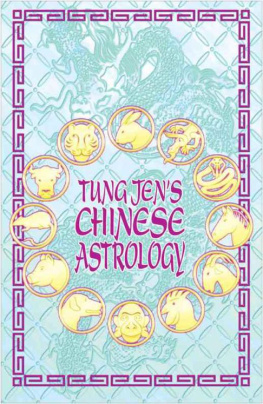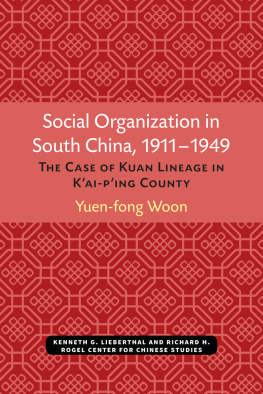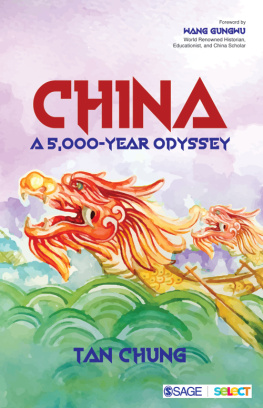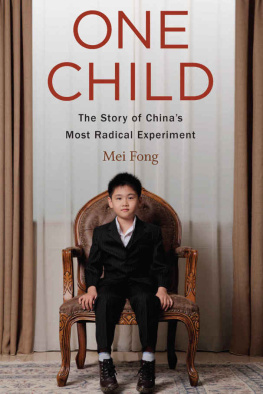The Common Law System in Chinese Context
Hong Kong Becoming China: The Transition to 1997
Ming K. Chan and Gerard A. Postiglione
Series General Editors
Because of Hong Kongs remarkable development under British rule for the past 150 years and its contemporary importance as a world economic and communications center on the Pacific Rim, and due to Hong Kongs future status as a Special Administrative Region of the Peoples Republic of China from 1997 well into the mid-twenty-first century, M.E. Sharpe has inaugurated this new multi-volume series. Published for an international readership, this series aims at providing both expert analysis and the documentary basis for a more informed understanding of Hong Kongs transition as a free society and capitalist economy toward socialist Chinese sovereignty under the One Country, Two Systems formula.
This series will explore various crucial dimensions of Hong Kongs current development in this transition process and their implications for the international community. Individual volumes in this series will focus on key areas and issues ranging from Chinas Basic Law for Hong Kong, education and social change, the existing common law legal system, the historical relationship between Britain, China, and Hong Kong, urban growth and infrastructural development, the control of the media, social movements and popular mobilization, the cultural identity of Hong Kong Chinese, to economic linkages with mainland China, the Beijing-Hong Kong-Taipei triangle, brain drain and migration overseas, as well as the internationalization of Hong Kong.
The Hong Kong Basic Law: Blueprint for Stability and Prosperity under Chinese Sovereignty? edited by Ming K. Chan and David Clark; Education and Society in Hong Kong: Toward One Country and Two Systems, edited by Gerard A. Postiglione; and The Common Law System in Chinese Context: Hong Kong in Transition, by Berry Hsu, are the first three books in this series.
Ming K. Chan is a member of the History Department, University of Hong Kong, and Coordinator of the Hong Kong Documentary Archives, Hoover Institution, Stanford University.
Gerard A. Postiglione is a member of the Education Department, University of Hong Kong.
First published 1992 by M.E. Sharpe
Published 2015 by Routledge
2 Park Square, Milton Park, Abingdon, Oxon OX14 4RN
711 Third Avenue, New York, NY 10017, USA
Routledge is an imprint of the Taylor & Francis Group, an informa business
Copyright 1992 Taylor & Francis. All rights reserved.
No part of this book may be reprinted or reproduced or utilised in any form or by any electronic, mechanical, or other means, now known or hereafter invented, including photocopying and recording, or in any information storage or retrieval system, without permission in writing from the publishers.
Notices
No responsibility is assumed by the publisher for any injury and/or damage to persons or property as a matter of products liability, negligence or otherwise, or from any use of operation of any methods, products, instructions or ideas contained in the material herein.
Practitioners and researchers must always rely on their own experience and knowledge in evaluating and using any information, methods, compounds, or experiments described herein. In using such information or methods they should be mindful of their own safety and the safety of others, including parties for whom they have a professional responsibility.
Product or corporate names may be trademarks or registered trademarks, and are used only for identification and explanation without intent to infringe.
Library of Congress Cataloging-in-Publication Data
Hsu, Berry Fong-Chung, 1950
The common law system in Chinese context: Hong Kong in Transition / by Berry Fong-Chung Hsu.
p.cm.(Hong Kong becoming China)
Includes bibliographical references and index.
ISBN 0-87332-845-0
1. Common lawHong Kong.
I. Title.
II. Series.
KNR482.H781992
340.570951dc20
91-42823
CIP
ISBN 13: 9780873328456 (hbk)
Roger B. M. Cotterrell
Legal professionals often find it difficult to appreciate fully just how much the smooth running of a modern legal system depends on the legal knowledge or opinions of non-lawyers. In Western societies, at least, legal positivism has taught that law is a technology of rules, shaped and supplemented by policy, and that policy is what the state hands down to be implemented through the professionally supervised techniques of the law. The idea that the success of law as state regulation may ultimately depend on laypeoples views of law and its context at least as much as on lawyers special legal knowledge risks hurting professional pride.
The sociology of law, nevertheless, has a long tradition of relating lawyers law to the living law of popular expectations, practices, and social rules. Its literature has shown how the effectiveness of the law created and applied by state institutions may depend on the extent to which this law strikes a chord in the culture of the regulated population. Where the fundamental values associated with law or its underlying assumptions diverge profoundly from the basic values and attitudes of the population, or at least of powerful or influential sections of it, and where there are inadequate counterbalancing incentives for the adjustment of conduct and expectations to those that the law requires, warning bells should sound for the legislator, judge, and lawyer seeking to make regulation effective. Savignys early speculations on the roots of law in culture suggested as much and numerous empirical studies have explored the problems and appropriate conditions of the transplantation of legal ideas from one culture to another.
Wise regulation would seem to require that the regulator be well informed about the legal culturethe assumptions and expectations about lawprevalent within the regulated population. Western legal philosophys speculations on relationships between law and morality are of little help here. But empirical studies of community legal values are potentially useful and there has been a significant tradition of such studies in the sociology of law, at least since the pioneer Scandinavian researches on the popular sense of justice that were carried out in the 1940s.
Dr. Hsus study of lawyers and laypeoples views on the Common Law system in Hong Kong is a welcome addition to the literature on popular knowledge and opinion about law. It provides food for thought about the way the Common Law system has developed, and has apparently acquired substantial popular acceptance in many respects, in a very specific colonial situation and in a cultural context where it might seem markedly alien. Beyond this, the study appears at a time of momentous legal and political change for Hong Kong so that the research findings could scarcely be more practically relevant to an assessment of the legal future of the territory. The questions that lie behind this study are some of the most significant that can be asked about Hong Kong law today. Do the people of Hong Kong regard its present system of law as their own, or as merely that of the colonist? Will they support its continuance after 1997, or will they acquiesce in its dismantling or decay as an alien, imposed legal order?













